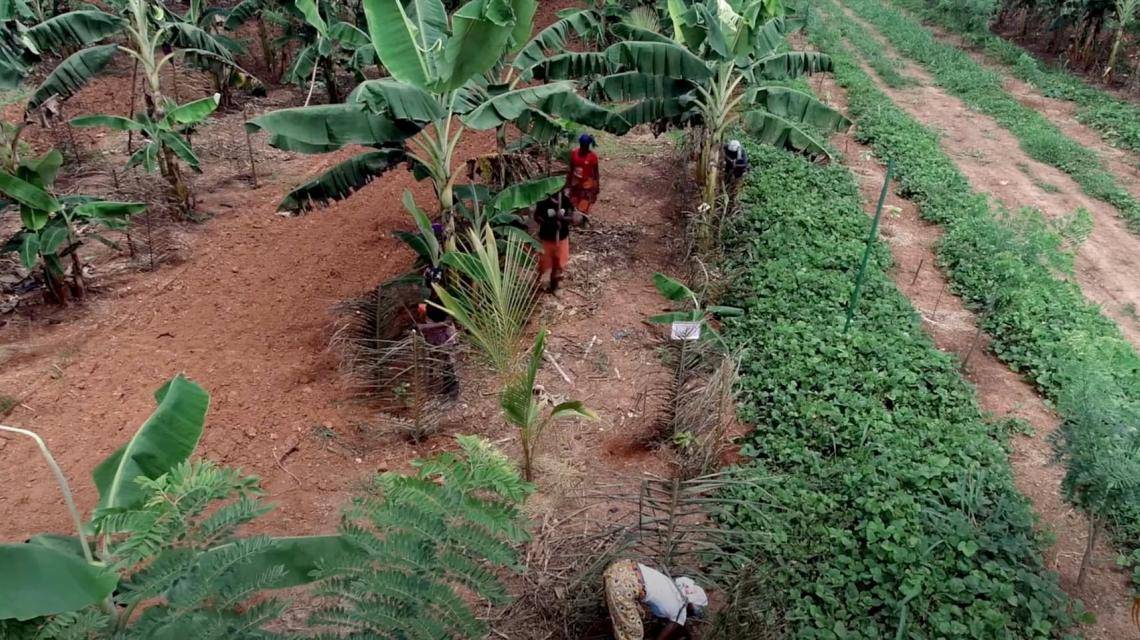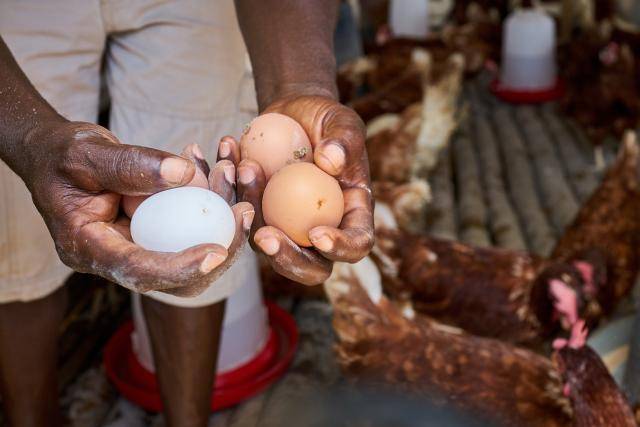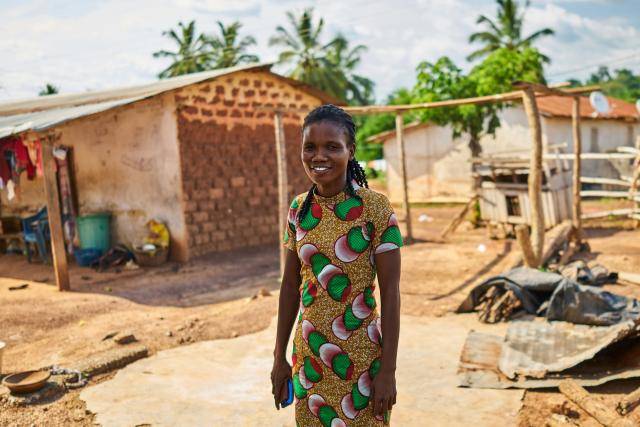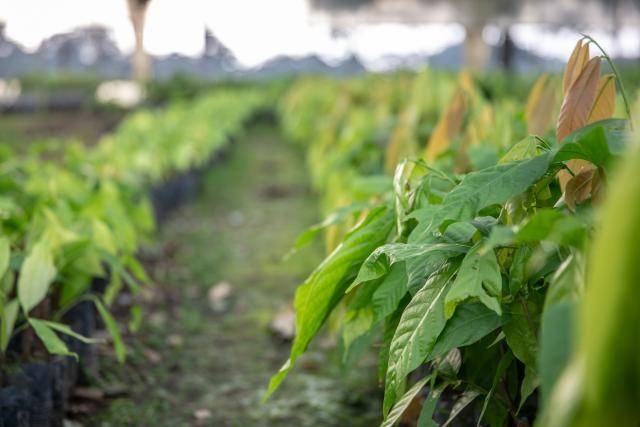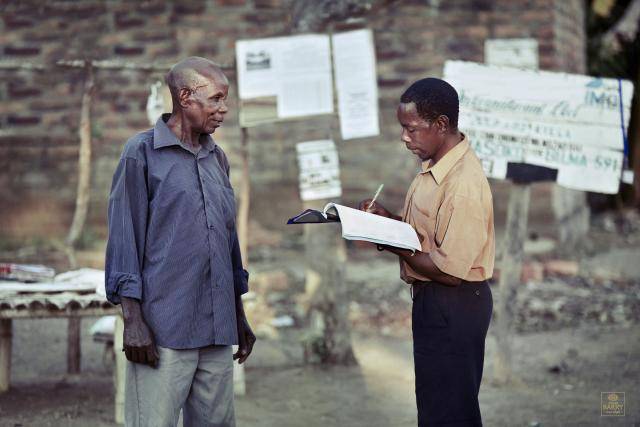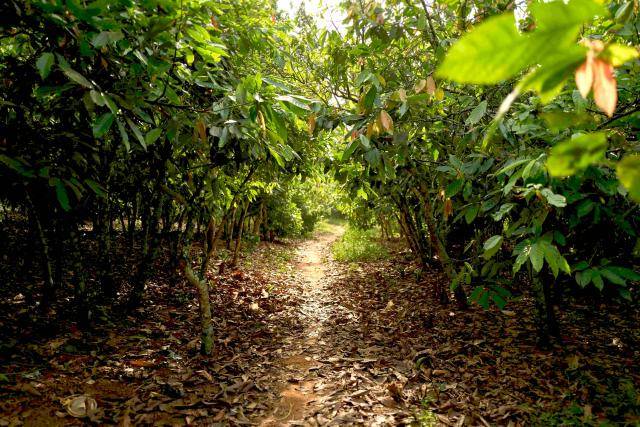Forever Chocolate Progress Report 2018/19
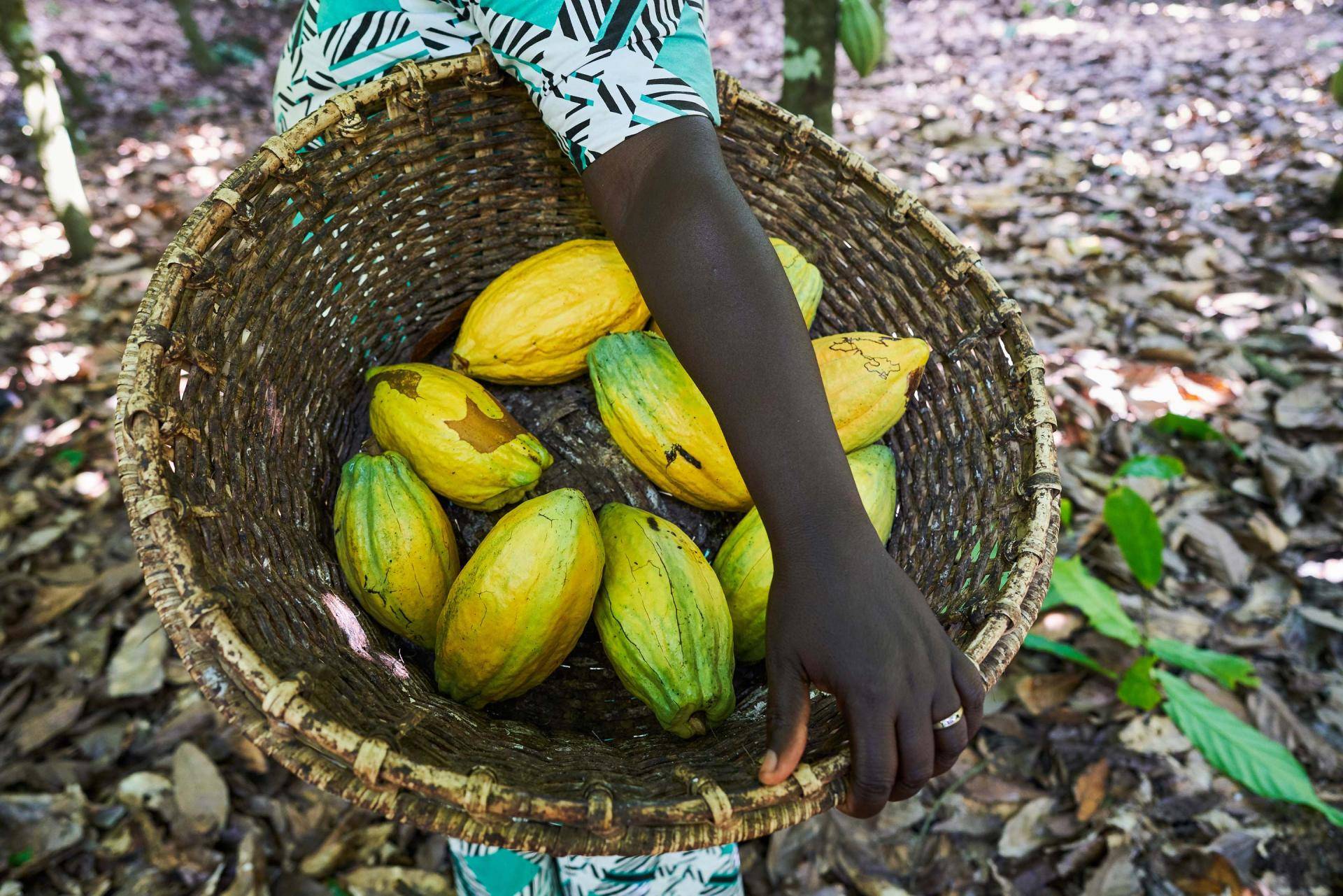
Forever Chocolate Progress Report 2018/19

Highlights
-
51% of agricultural raw materials are sustainably sourced
-
-6.7% reduction in our carbon footprint
-
Over 176,984 farms with geographical mapping and farmer census
-
49,909 cocoa farmers who have access to coaching, inputs such as tool and seedling or finance
-
26% of the farmer groups we directly source from have systems in place to prevent, monitor and remediate child labor
-
3,800 hectares of forest regenerated

Message from the CEO
In 2016, Barry Callebaut launched Forever Chocolate, our plan to make sustainable chocolate the norm by 2025. Through measurable, time-bound targets, in combination with third-party verified annual reporting, Forever Chocolate is about creating impact in the chocolate value chain. We want to achieve this through innovative projects that will lift cocoa farmers out of poverty, eradicate child labor, create a carbon and forest positive supply chain and ensure 100% sustainable ingredients in all of our products.
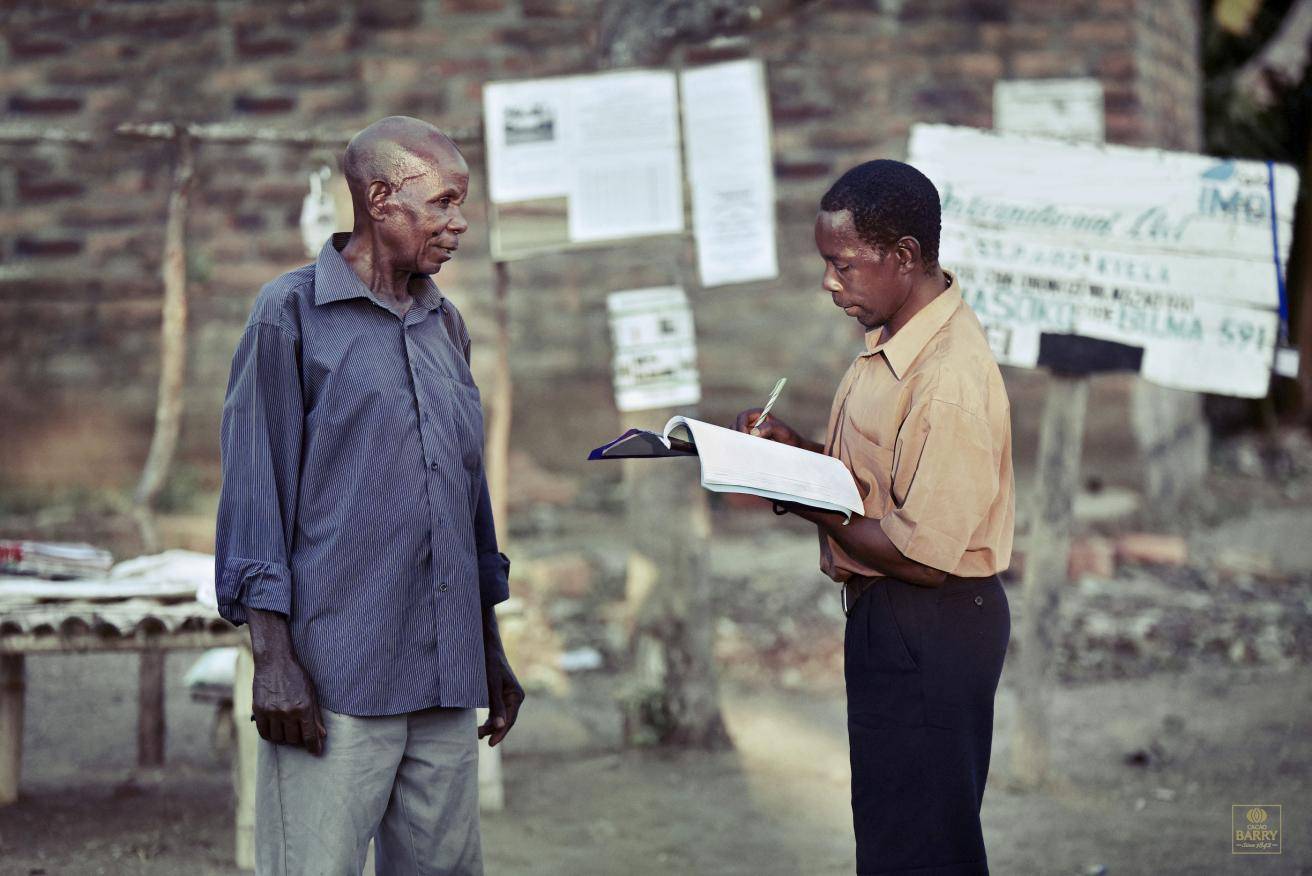
Our approach
Sustainability is at the heart of our business. This is why in 2016 we launched Forever Chocolate, our plan to make sustainable chocolate the norm by 2025. By committing to have more than 500,000 cocoa farmers in our supply chain lifted out of poverty, eradicating child labor from our supply chain, becoming carbon and forest positive and by having 100% sustainable ingredients in all of our products, we will bring systemic change to the cocoa and chocolate value chain. Every year we report on the progress we are making against the Forever Chocolate targets.
Our third, most recent, progress report, covering fiscal year 2018/19 (ended August 31, 2019), shows that we are creating impact on the ground and leading change in the cocoa and chocolate value chain.
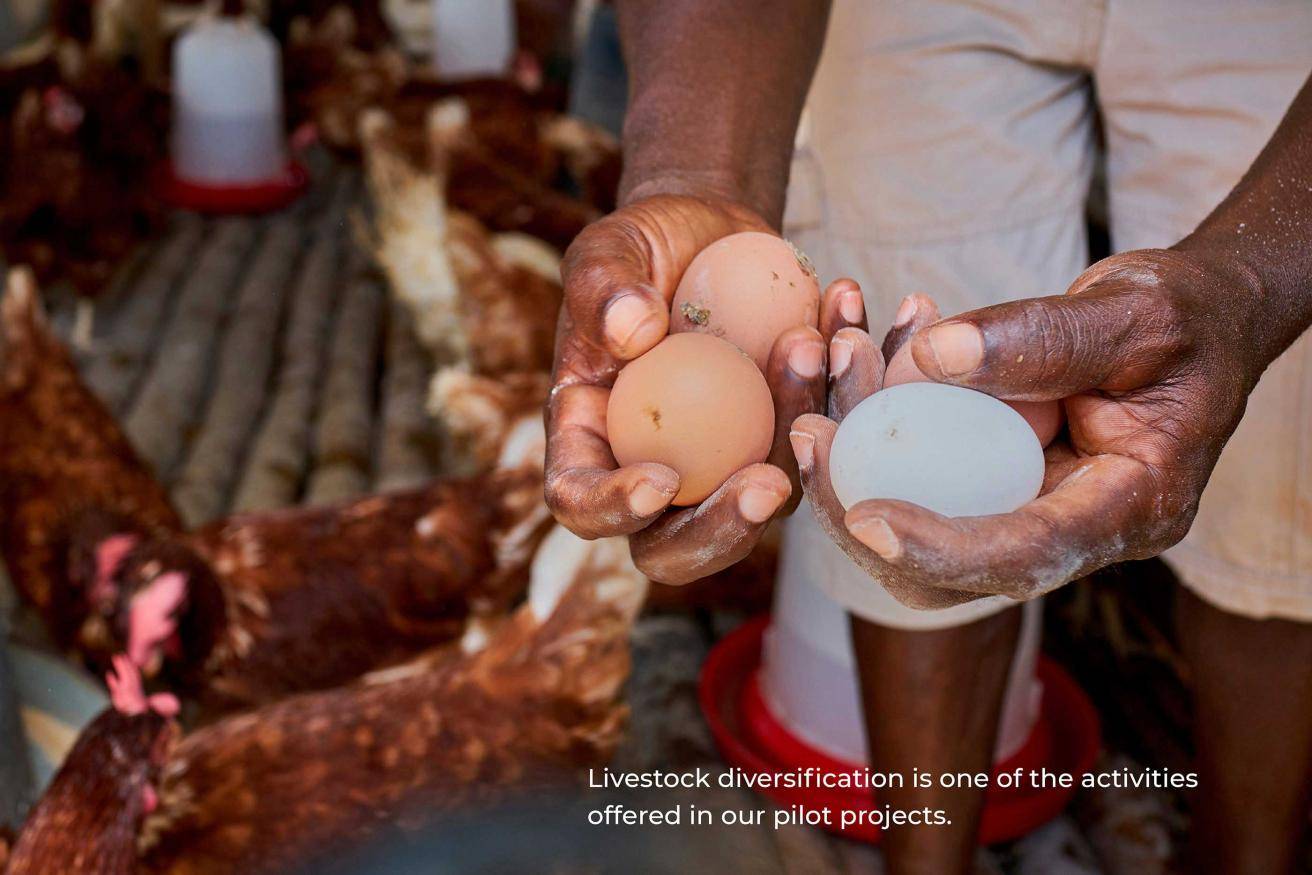
Prospering Farmers
Our goal
By 2025, more than 500,000 cocoa farmers in our supply chain will have been lifted out of poverty.
Our approach
In order for more than 500,000 cocoa farmers in our supply chain to have been lifted out of poverty, it is key that we have a proper understanding of the structural challenges facing cocoa farmers. Farm-specific support is more effective in lifting farmers out of poverty than a one-size-fits-all approach. That is why we kicked off the pilot projects in key cocoa-growing countries to further our understanding of country-specific sustainable cocoa farming models.
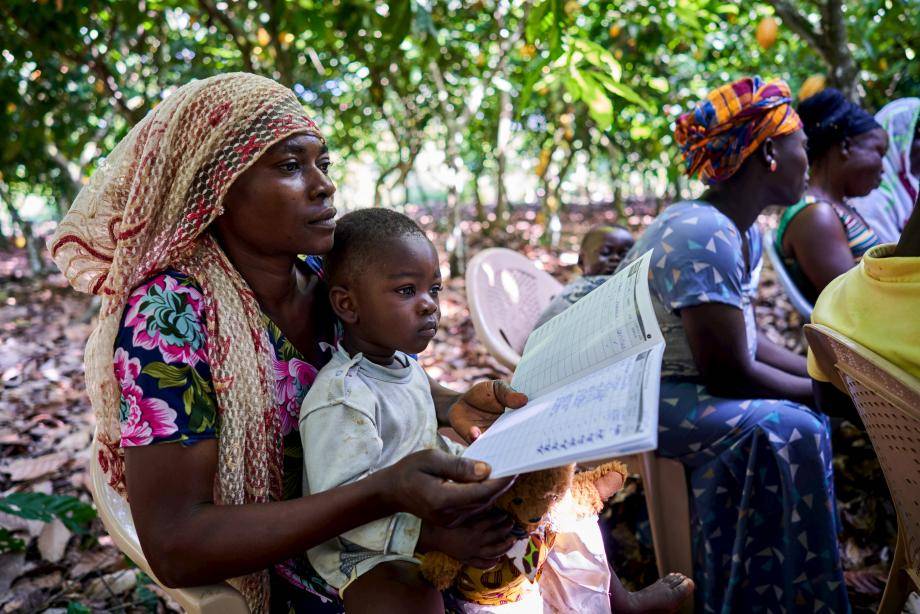
Our measured impact
- 184,623 cocoa farmers in our supply chain are now out of poverty, measured against the World Bank's USD 1.90/day threshold for extreme poverty
- 49,909 cocoa farmers who have access to coaching, inputs such as tools and seedlings, or finance
- 420 hectares of cocoa replanted
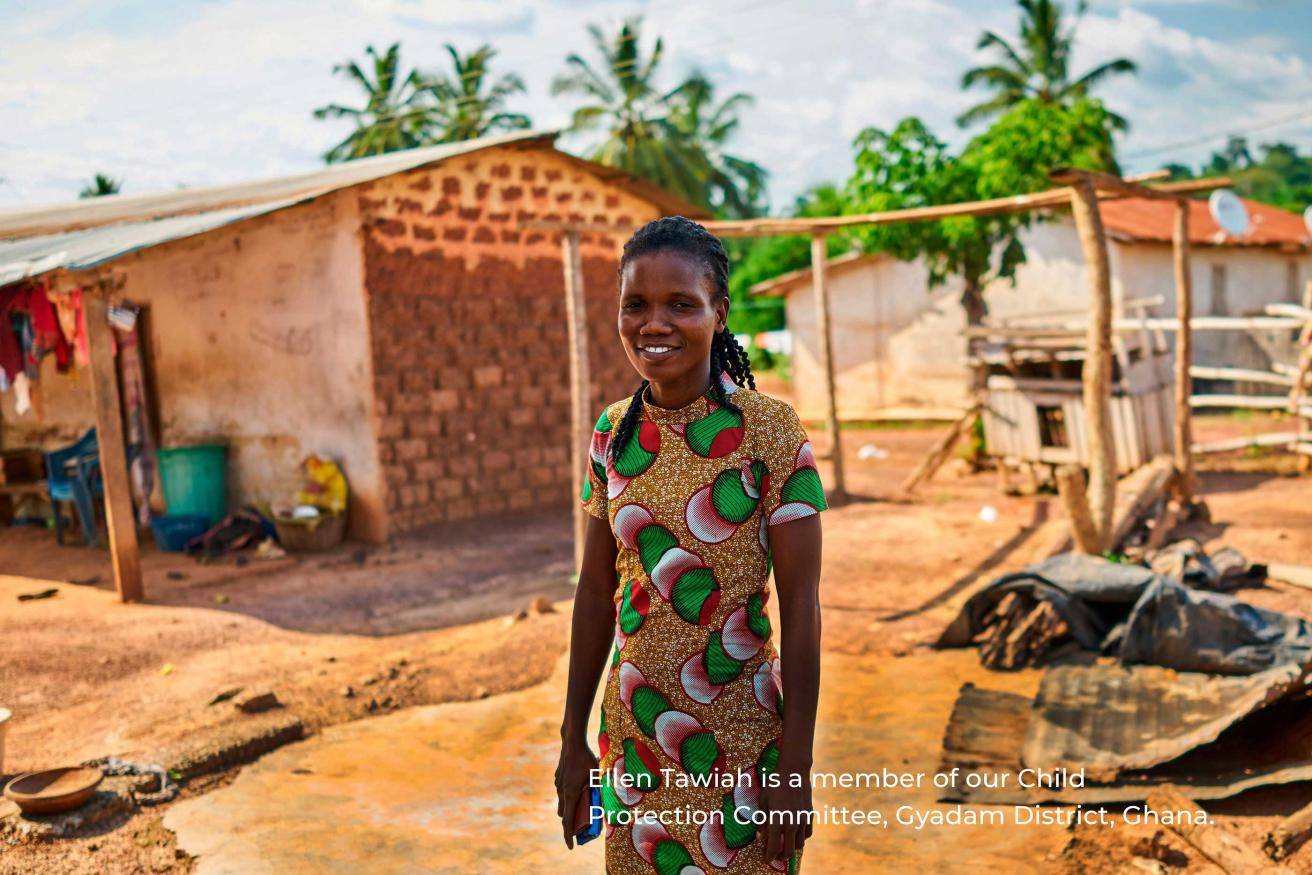
Zero Child Labor
Our goal
By 2025, we will eradicate child labor from our supply chain.
Our approach
Child labor continues to be present in cocoa farming, in particular in West Africa. This is the result of both poverty and a lack of access to social infrastructure. The lack of access to quality education, for example, impacts cocoa farmers’ perspectives as to whether schooling will bring any benefits to their children. Lifting cocoa farmers out of poverty will be a game changer in the fight against child labor, but it will not be enough.

Our measured impact
- 3,867 child labor cases identified
- 2,333 child labor cases in the process of being remediated
- 26% farmer groups we directly source from have systems in place to prevent monitor and remediate child labor
- 37% of the cocoa and non-cocoa volume sourced from third party suppliers from low risk segmentation is covered by equivalent child labor monitoring systems.
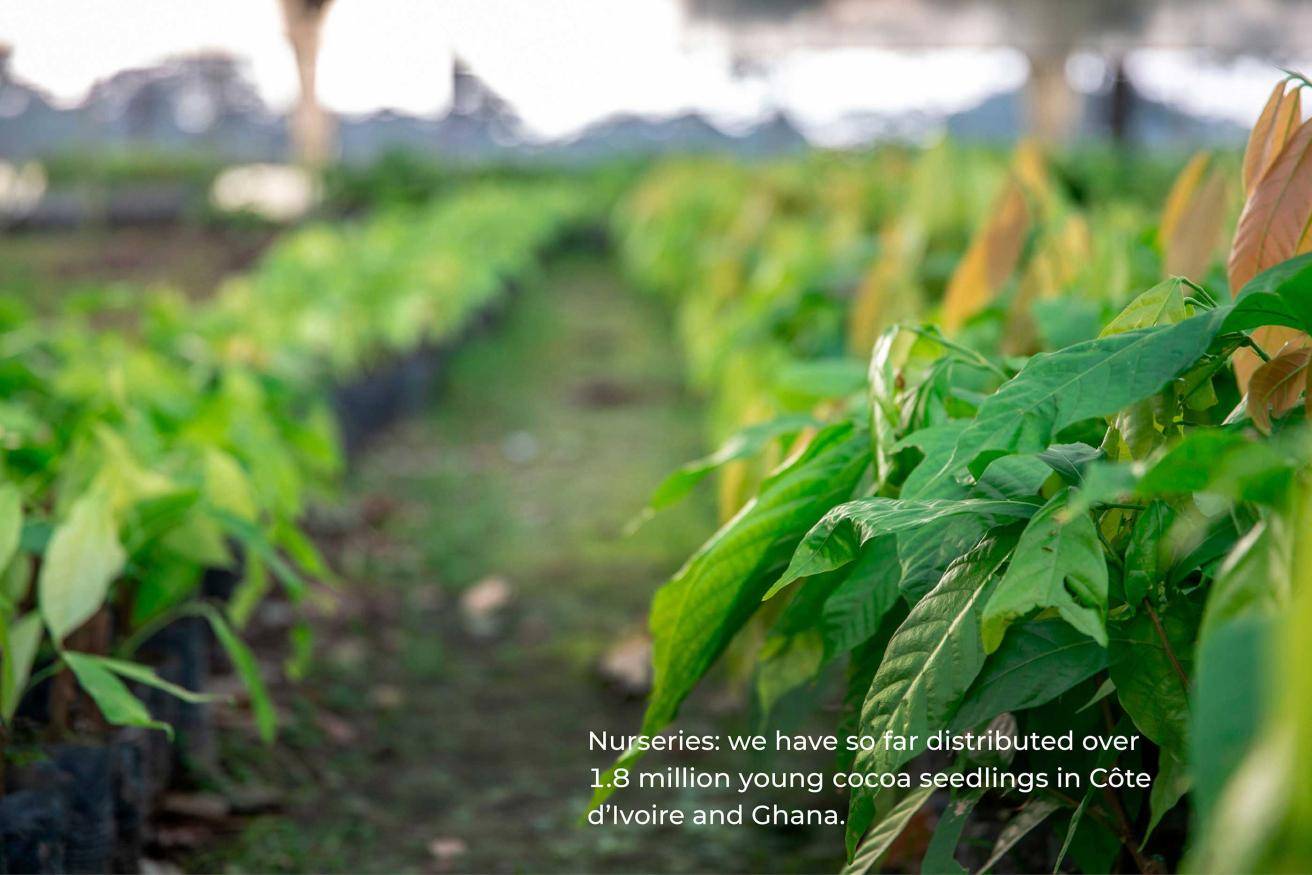
Thriving Nature
Our goal
By 2025 we will be carbon and forest positive
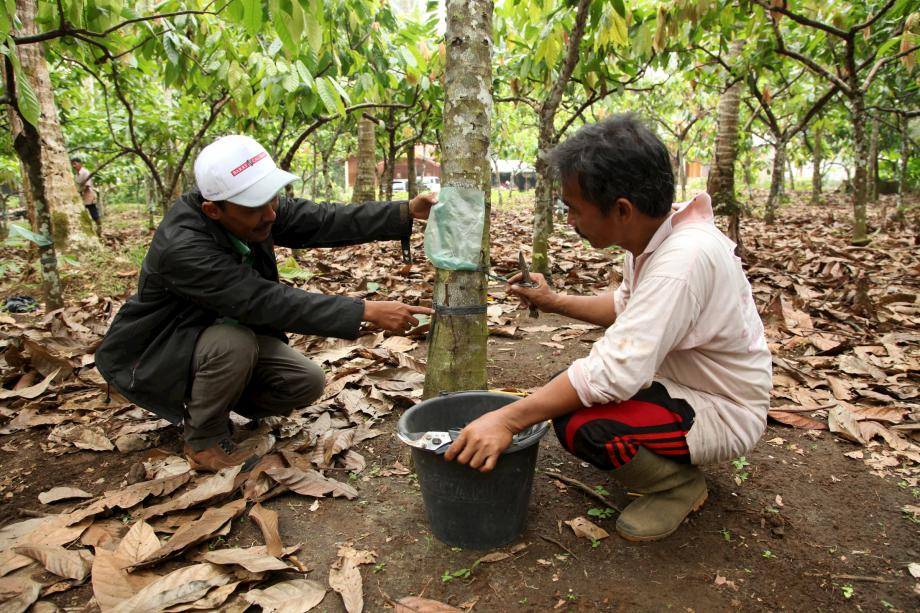
Our approach
Climate change can have severe impacts on agricultural regions. Droughts mean farmers can no longer rely on crucial rainfall, while deforestation leads to soil degradation. If the chocolate industry does not commit to reducing its carbon footprint and achieve a deforestation free supply chain, the ecosystems that provide chocolate ingredients will erode.
To become carbon positive by 2025, we need to understand exactly how much carbon we have to reduce or offset.
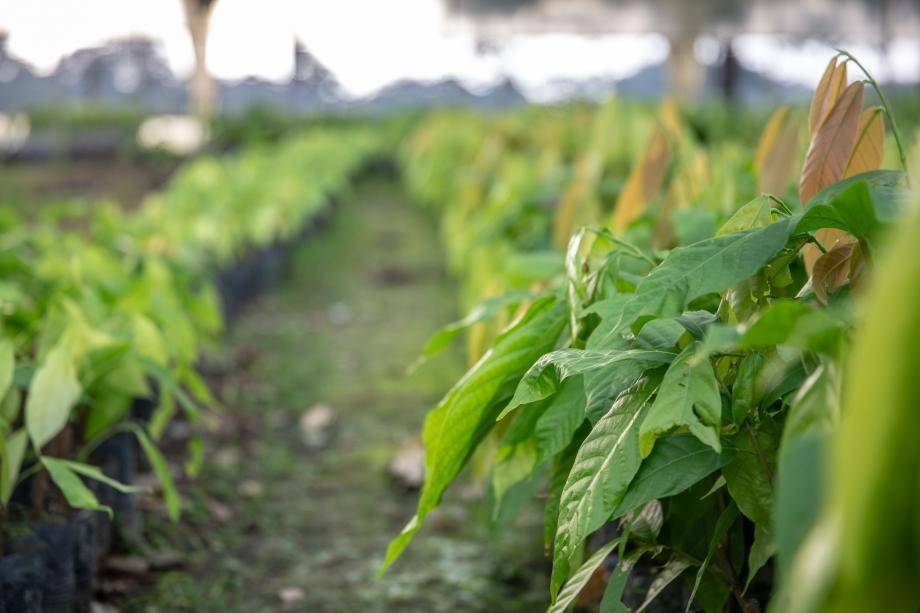
Our measured impact
- 8.49 Million tonnes of CO2: the carbon footprint of our supply chain from farm to customer
- 3,800 hectares of forest regenerated
- 3.88 CO2 intensity per tonne of product
- 37.6% sourced raw materials demonstrated not to be contributing to deforestation

Sustainable Chocolate
Our goal
By 2025, we will have 100% sustainable ingredients in all our products.
Our approach
At Barry Callebaut we source a wide range of ingredients including dairy, palm oil, coconut oil, soy lecithin, vanilla, cane sugar, beet sugar and nuts for inclusion in our chocolate products. We recognize that each of these raw materials has its own complex supply chain that can also vary across different geographical regions. We are therefore working with our suppliers and certification and sustainability programs, to define and implement sustainability standards for each ingredient.

Our measured impact
- 51% of agricultural raw materials sustainably sourced
- 47% of sustainably sourced cocoa beans
- 54% of sustainably sourced non-cocoa raw materials
